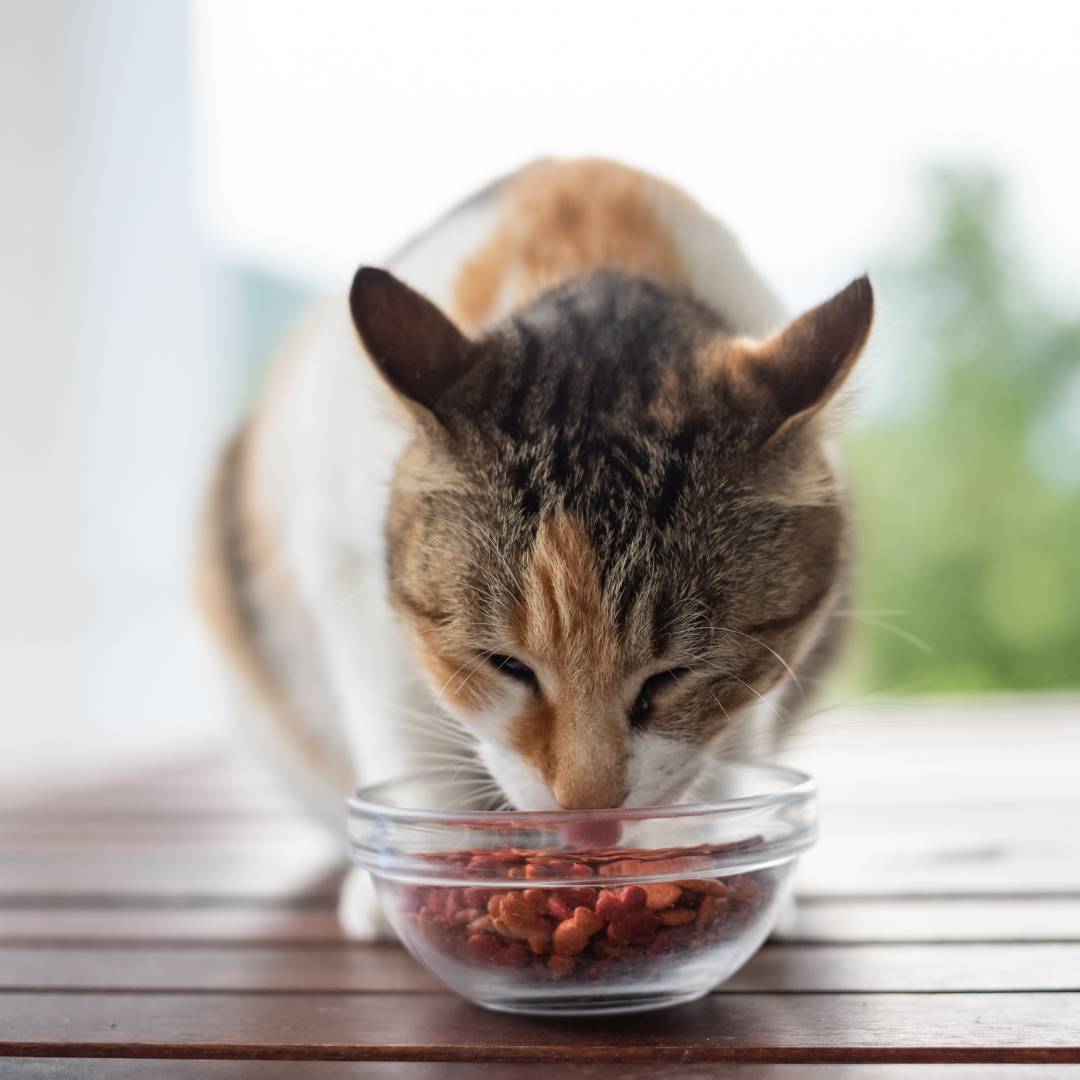
Diabetes in pets is becoming a growing concern for many pet parents. Similar to humans, managing diabetes in cats and dogs requires a comprehensive approach that includes proper diet, regular exercise, and appropriate medical care. In this blog, we will delve into the significance of diet and a healthy lifestyle in managing diabetes in pets, and provide practical tips for helping your furry friends live their healthiest lives.
It’s important to focus on maintaining a balanced diet, regular physical activity, and routine veterinary check-ups
Why is Diet Important for Diabetic Pets?
Managing diabetes in pets begins with a focus on their diet. Studies have revealed that obese cats are 3.9 times more likely to develop diabetes mellitus than cats with a healthy body weight. In a similar vein, obesity in dogs increases the likelihood of insulin resistance and diabetes. Providing appropriate nutrition plays a vital role in stabilizing blood sugar levels, preventing sudden fluctuations, and sustaining overall well-being.
For diabetic pets, offering a carefully balanced diet that fulfills their nutritional needs without aggravating their condition is crucial. By implementing the right dietary plan, we can significantly enhance diabetes management and improve the quality of life for our beloved furry companions.
Recommended Foods for Diabetic Pets
Feeding your diabetic pet the right foods is critical to controlling their blood sugar levels. Here are some recommended options.
For Cats:
- High-Protein, Low-Carbohydrate Diets: Cats are obligate carnivores, meaning they thrive on high-protein diets. Look for cat foods that prioritize meat as the primary ingredient and avoid those high in carbohydrates.
- Canned foods: Canned diets can benefit cats with diabetes. They are typically less calorie-dense than dry kibble and offer higher moisture content. The increased moisture is especially important for diabetic cats, as they tend to drink and urinate more frequently
For Dogs:
- Low-Glycemic Index Foods: Foods with a low glycemic index release glucose slowly, helping to prevent blood sugar spikes. Include ingredients like sweet potatoes, brown rice, and leafy greens.
- Lean Proteins: Opt for lean meats such as chicken, turkey, and fish to provide essential proteins without excess fat.
- High-Fiber Options: Fiber-rich foods like carrots, peas, and barley can help manage blood sugar levels in dogs.
NHV Natural Supplements for Diabetic Pets
NHV Natural Pet Products provides a diverse range of supplements specifically formulated to promote the well-being of diabetic pets. Among these supplements, NHV Mellit stands out as a natural supplement that can help regulate blood sugar levels and contribute to overall health.

Combining Mellit with a balanced diet can help manage diabetes in pets. Additionally, Diabetes Super Support Gold offers comprehensive support for overall health and can help ease symptoms of diabetes in dogs and cats, manage blood sugar levels, and protect other organs affected by the disease, while the Diabetes Kit with Metabolism Support contains NHV Multi Essentials‘ sophisticated formula that supports your pet’s metabolism by providing nourishment with plant-derived vitamins and minerals.
Preventative Measures: Diet, Exercise, and Routine Check-Ups
To help prevent diabetes in pets, it’s important to focus on maintaining a well-balanced diet, promoting regular physical activity, and prioritizing routine veterinary check-ups.
Here are some helpful tips:
- Balanced Diet: Provide your pet with a nutritious diet tailored to its specific needs and avoid foods that are high in sugar and carbohydrates.
- Regular Exercise: To ensure your pet stays healthy, make it a priority to keep them active with daily walks, play sessions, and engaging activities. This will help them maintain a healthy weight and regulate their blood sugar levels.
- Routine Veterinary Check-Ups: Regular vet check-ups are essential for catching early signs of diabetes and other health issues, which allows for timely intervention.
Physical Activity for Diabetes in Pets

Ensuring that pets engage in regular physical activity is essential for effectively managing diabetes. Exercise plays a key role in regulating blood sugar levels, enhancing insulin sensitivity, and promoting a healthy weight. Moreover, consistent physical activity contributes to overall well-being and helps minimize the risk of diabetes-related complications.
Tips for Encouraging Physical Activity
Encouraging your pet to stay active can be fun and rewarding. Here are some practical tips:
- Interactive Play: To keep your pet engaged and active, opt for toys that tap into their natural instincts, such as feather wands for cats or fetch toys for dogs.
- Regular Walks: Regular walks are crucial for dogs as they offer vital exercise and mental stimulation. Establish a routine to explore various routes and parks to keep your furry friend engaged and healthy.
- Engaging Toys: Puzzle toys and treat-dispensing toys are great for keeping pets entertained and active while also promoting physical and mental exercise.
Personalized Veterinary Nutrition Plan for Diabetes in Pets
NHV offers a Personalized Veterinary Nutrition Plan to assist pet parents in creating tailored diet and exercise strategies for their diabetic fur kiddos. This service ensures that your pet receives a customized plan addressing their unique needs and health goals. Reach out to NHV for personalized nutritional support and guidance in managing your pet’s diabetes.
Diabetes in Pets Can Be Treated
Managing diabetes in pets requires a comprehensive approach that involves a balanced diet, regular exercise, and routine veterinary care. By following the tips and recommendations provided in this blog, you can help your diabetic pet lead a healthy and fulfilling life. Remember, NHV is here to support you with natural supplements and personalized nutrition plans tailored to your pet’s needs.
Published: August 14, 2024

 USD
USD
 Canadian Dollars
Canadian Dollars



